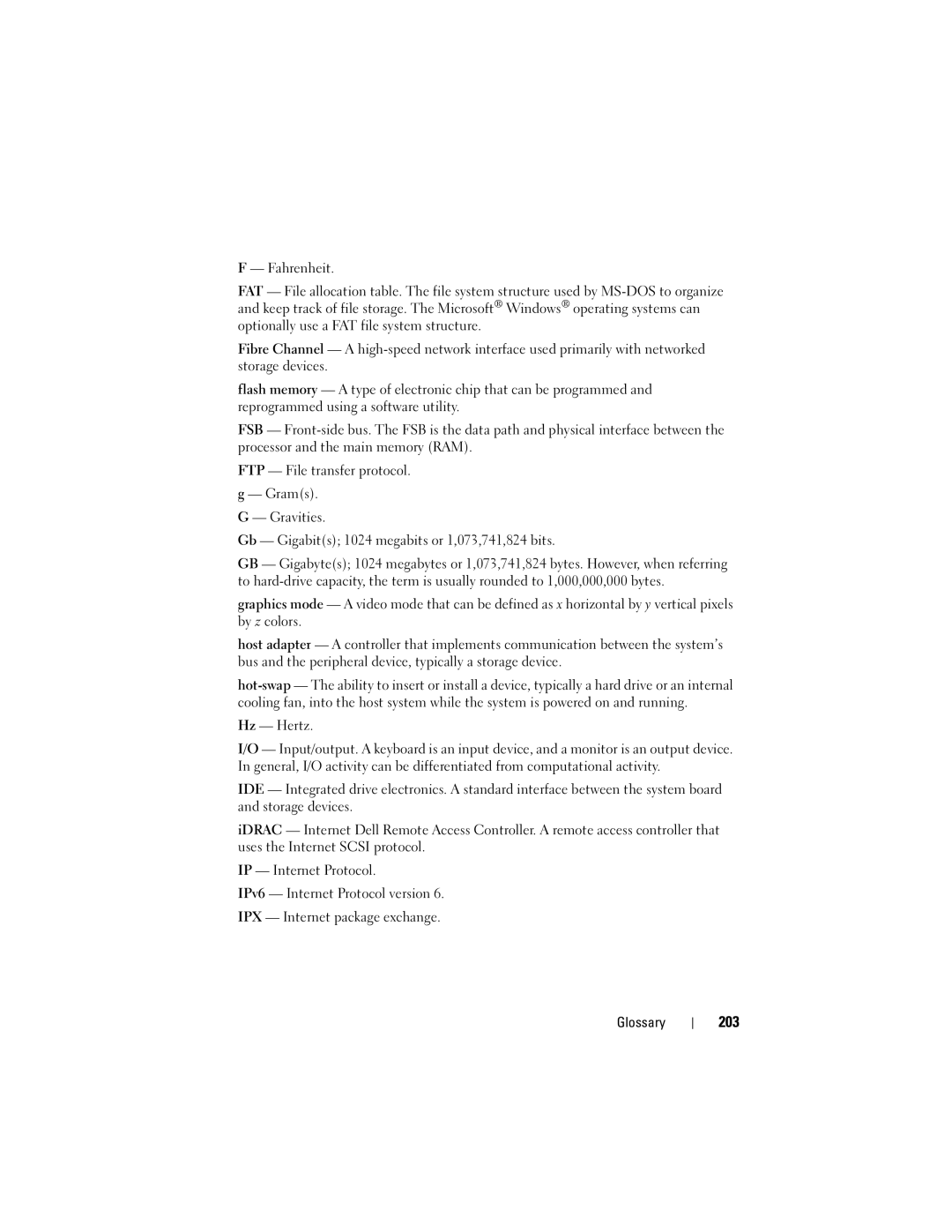F — Fahrenheit.
FAT — File allocation table. The file system structure used by
Fibre Channel — A
flash memory — A type of electronic chip that can be programmed and reprogrammed using a software utility.
FSB —
FTP — File transfer protocol.
g — Gram(s).
G — Gravities.
Gb — Gigabit(s); 1024 megabits or 1,073,741,824 bits.
GB — Gigabyte(s); 1024 megabytes or 1,073,741,824 bytes. However, when referring to
graphics mode — A video mode that can be defined as x horizontal by y vertical pixels by z colors.
host adapter — A controller that implements communication between the system’s bus and the peripheral device, typically a storage device.
Hz — Hertz.
I/O — Input/output. A keyboard is an input device, and a monitor is an output device. In general, I/O activity can be differentiated from computational activity.
IDE — Integrated drive electronics. A standard interface between the system board and storage devices.
iDRAC — Internet Dell Remote Access Controller. A remote access controller that uses the Internet SCSI protocol.
IP — Internet Protocol.
IPv6 — Internet Protocol version 6.
IPX — Internet package exchange.
